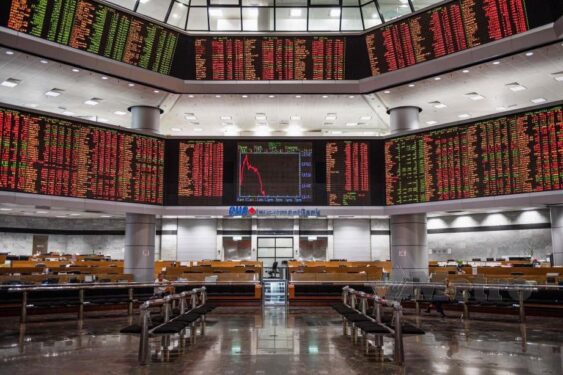ANALYSTS are mixed on the banking sector with AmInvestment Bank Research maintaining its overweight call on the industry while Affin Hwang Capital and TA Securities Research have a neutral stance.
AmInvest said industry loan growth rose to 3.9% yoy in December 2019 from November’s 3.7%. The improvement was contributed by a stronger non-household loan growth of 2.7% yoy (November 2019: 2.4% yoy ) while household loan growth remained stable at 4.7% yoy. Disbursements for non-household loans outpaced repayments in December 2019.
For 2020, the research firm’s loan growth projection was unchanged at 4% against a GDP growth assumption of 4.6%.
It remains overweight on the banking sector as valuation and dividend yields of banks remain compelling. Its top picks are Maybank (FV: RM9.70), RHB Bank (FV: RM6.50) and Hong Leong Bank (FV: RM18.90).
December 2019 saw a stronger growth in loan applications from households. Meanwhile, approvals for both household and non-household loans picked up pace. Deposits gained traction with improvement in growth of deposits from individuals and business enterprises. Industry deposit growth rose to 2.9% yoy last December versus 2.6% yoy in November. Growth of deposits from both individuals and business enterprises improved in December 2019.
AmInvest said in line with the better loan growth, the loan-deposit (LD) ratio for the sector eased to 88.6% in December 2019. Industry Current Account Savings Account (CASA) growth surged to 6.7% yoy that month vs 5.5% yoy in November, leading to a higher CASA ratio of 26.5%.
The sector’s weighted base rate and average lending rate were unchanged at 3.68% and 5.16% respectively. Also, the BLR remained at 6.71%. Interest spread (difference between weighted average lending rate and average FD rate) was sustained at 2.20% in December.
The industry’s outstanding impaired loans for the month fell by 4.6% month-on-month, or by RM1.29 bil.
By loan purpose, the decline was largely driven by lower impairment of loans for purchase of transport vehicles, personal, construction and working capital loans. Nevertheless, the industry’s total Gross Impaired Loan (GIL) decreased slightly to 1.5% while NIL ratio was reduced to 0.96% vs 1.02% in the previous month. Total provisions for the sector fell by 4.4% mom or by RM1.1 bil.
“The sector’s Common Equity Tier 1 (CET1) climbed by 10bp mom to 13.8% with the increase in retained earnings from banks’ half-yearly profits,” said AmInvest.
Meanwhile, Affin Hwang said asset quality for the sector, as implied by a gross impaired loan ratio of 1.51%, remains manageable though it has increased from 1.48% in 2018. Certain economic sectors, such as agriculture, manufacturing and household, had contributed to the increase in system impaired loans in 2019 (6.1% yoy).
“As we foresee a more subdued economic outlook in 2020, our loan growth target remains unchanged at 3% (despite the recent 25bps cut in the OPR) while not discounting the possibility of a further increase in the system impaired loans as sentiment deteriorates,” said Affin Hwang. It maintains its neutral stance on the sector. Its top picks are AMMB and AEON Credit for which it has a buy call and target prices of RM3.70 and RM12.98, respectively.
TA Research said demand for credit was mostly supported by the consumer segment. Loan applications remained buoyant, rising 5.5% yoy while total loans approved increased by 7.6% yoy. The research house has reiterated its neutral call for the sector as it expected more cautiousness going forward.
It forecast loan growth to remain tepid, rising at around 4% in 2020, on the back of a 4.8% and 3% increase in consumer and business loans, respectively.
TA Research has a buy call on CIMB, RHB Bank, AMMB, Hong Leong Bank, Alliance Bank and Affin Bank, but a sell recommendation for Public Bank and a hold for Maybank. – Feb 3, 2020












